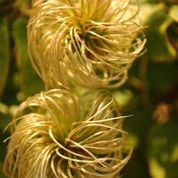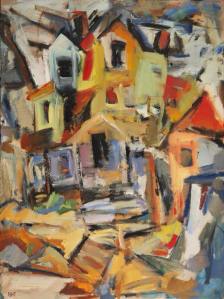by Dita West
Once upon a time there was a Great South Land, hypothesised but unknown, searched for but unfound. Sea explorers were wrecked on its coasts, or mistook it for something else. The great south land’s inhabitants were part of the land and sea itself, so they were able to keep the land and themselves hidden for a long time, but eventually, like all once hidden islands, it was found. Apparently the inhabitants were still invisible, as the new arrivals, a motley crew, declared it an Empty Land, Terra Nullius. Land explorers died of thirst in its emptiness.
Descended from the motley crew who had colonised the Empty Land, red-haired Pauline at a South Australian Primary School in the 1950s was taught the same history in Grades Four, Five and Six. Each year she had to circle and cross maps of Australia with different coloured dots and dashes, to indicate the coastal and inland discoveries of the white explorers. Little though she knew about the land before 1788, she thought you couldn’t discover anything that other people (in this case the Australian Aborigines) already knew. Saying this in Grade Five got her rapped on the knuckles with the yard-stick.
She had not actually ever seen any Aboriginal people, apart from photos in school books of near-naked people in the desert, accompanied by photos of stone weapons and woven baskets. But in Grade Seven, at a church social, there was a group of young Aboriginal boys, all dressed in grey suits. They were not with families, as most of the other children at the social were. Their only family seemed to be one another. Or a boy much older than most of them, a boy with golden skin and shining curly hair. She heard him called “Stevie”. Stevie was the one the boys went to for cuddles, for talking, for laughter, as if he was everybody’s older brother.
They were from the Boys Home, her mother told her. “Why are they there?” she asked. “Their mothers don’t want them” said Pauline’s mother.
Some years later, when Pauline read a different kind of history, she knew that the mothers had wanted them. She read about the violence and cunning cruelty, the ignorance and arrogance of the people she was in some way descended from, or beholden to. Then she felt she did not belong here, in Australia, the land she was
born in. She married a man who did have the right to be here, according to his Aboriginal ancestry. His inherited anger was more than equal to punishing her inherited guilt.
It was then that she found solace in the land. In the bush where they lived, bushland nurtured her. She walked under silver-green gums in the daytime, heard the whisper of their trembling leaves, sat in sun-warmed sand and chewed sour pig cactus, found Sturt Peas flaming in the dust, small miracles to sustain her.
She became aware that there were places of violence in the land as well as in her life. They were in the snarl of a rock-face, the feeling of panic it gave her until she moved behind it, in something that raised the hairs at the back of her neck if she turned her back on a deep waterhole. When they had to shift to a place near Maralinga, in the Nullarbor Desert, she felt fear in the silent white sky of the day, in the dingo’s howl of spacious night. Or perhaps it was her own her fear that had leaked into the land.
Gentle or harsh, the land breathed, and she was part of it. She could not become someone who was not born here. But she belonged in a limited way, so few her skills of survival, of country. She learned how much she did not have, how one bark painting could contain a world of physical and mental skill, spiritual lore and knowledge, all of them foreign to her She could neither sing nor be sung, had no clan land, no rites and ceremonies, to be passed on to her descendants.
Her husband’s past was the narrow streets of Sydney’s suburban ghetto, Redfern, the only clan land he knew, she thought. And she thought the rest of it was as unknown to him as to her. But later she realised that it was just not told to her, that his ancestry was in stories told in his family. And she did not belong in that family.
By the time she knew that, she had dotted her footprints across the desert from the long unbroken double lines of the railway, until she came to the sea. She would return, after all, to the past of the motley crew that was in her blood — green hills, red legends and lies, peasant silence and survival, salt water beating on rock and wrecked ships, church bells ringing over quiet villages; all the histories of Ireland, Cornwall, England.
She didn’t belong to them either. She stopped searching for belonging. She became a planetary tourist. When a doctor in one of the places she didn’t belong to told her that her escalating illness was Emphysema, she booked her ticket for Australia which was no longer Empty Land. But somewhere inland, somewhere lonely, somewhere by a railway line, somewhere she had lived with a man whose anger was as great as her guilt, she hoped to find a place that would accept her dust as part of its own.
*****************************************************
Dita West is the name under which Judith Steele writes Island Lies, a collection of poetry, fiction and faction. Empty Land is from that collection. Her story Once, also from Island Lies, was published by Islet Online (Autumn (April) 2011) .

photo by Kristi Harms





